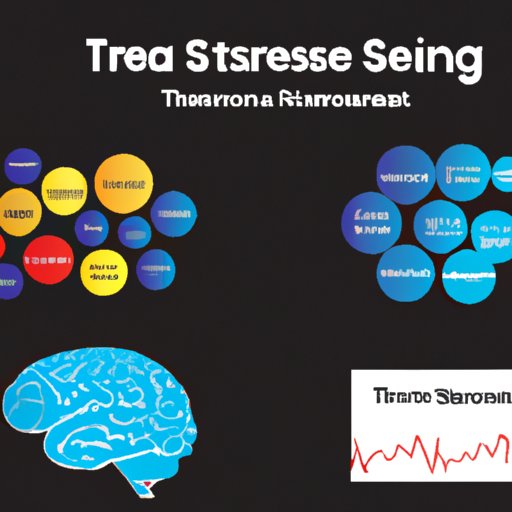Introduction
Stress is a natural part of life. It can be an adaptive response to a challenging situation or an indicator that something needs to change. But when experienced in excess, it can take a toll on our physical and mental health. So what is stress science? This article will explore the science behind stress, from its causes and effects to various management strategies.
Exploring the Science Behind Stress: Causes, Effects and Management Strategies
The biology of stress plays a key role in how we respond to stressful situations. When we perceive a threat, our body releases a cascade of hormones, such as adrenaline and cortisol, which prepare us to fight or flee. This “fight-or-flight” response is a normal and necessary reaction to danger. However, when this response is triggered too often or for too long, it can have a negative effect on our physical and mental health.
Stress Management Techniques: What Science Says Can Help
Fortunately, there are several stress management techniques that have been proven effective by scientific research. Relaxation techniques, such as deep breathing, progressive muscle relaxation and mindfulness meditation, have been shown to reduce levels of stress hormones and improve overall wellbeing. Cognitive behavioral therapy (CBT) is also an effective way to manage stress by helping individuals recognize and modify their thoughts and behaviors. Finally, regular exercise can help to reduce stress levels and improve mood.

Neurochemistry of Stress: How Hormones and Brain Activity Influence Our Stress Response
The neurochemistry of stress is an important factor in how we respond to stressful situations. Cortisol is one of the main hormones released during periods of stress, and it has been linked to an increase in heart rate and blood pressure. Adrenaline, another hormone released during times of stress, helps to increase focus and alertness. Neurotransmitters, such as dopamine and serotonin, also play a role in the body’s stress response. Low levels of these neurotransmitters have been linked to depression and anxiety.
Stress and Mental Health: Examining the Link between Stress and Psychological Well-Being
The link between stress and mental health is well established. Research shows that chronic stress can lead to an increased risk of developing mood disorders, such as depression and anxiety. Additionally, stress can impair our ability to learn and remember information, and can lead to long-term changes in the brain. It is therefore important to find ways to manage stress in order to maintain good psychological wellbeing.
Conclusion
In conclusion, stress science provides insight into the biological, psychological, and neurological processes that underlie our stress response. From understanding the causes and effects of stress to exploring various management strategies, this article has outlined the basics of stress science. By learning more about the science behind stress, we can better manage our own stress levels and maintain good psychological wellbeing.
(Note: Is this article not meeting your expectations? Do you have knowledge or insights to share? Unlock new opportunities and expand your reach by joining our authors team. Click Registration to join us and share your expertise with our readers.)
